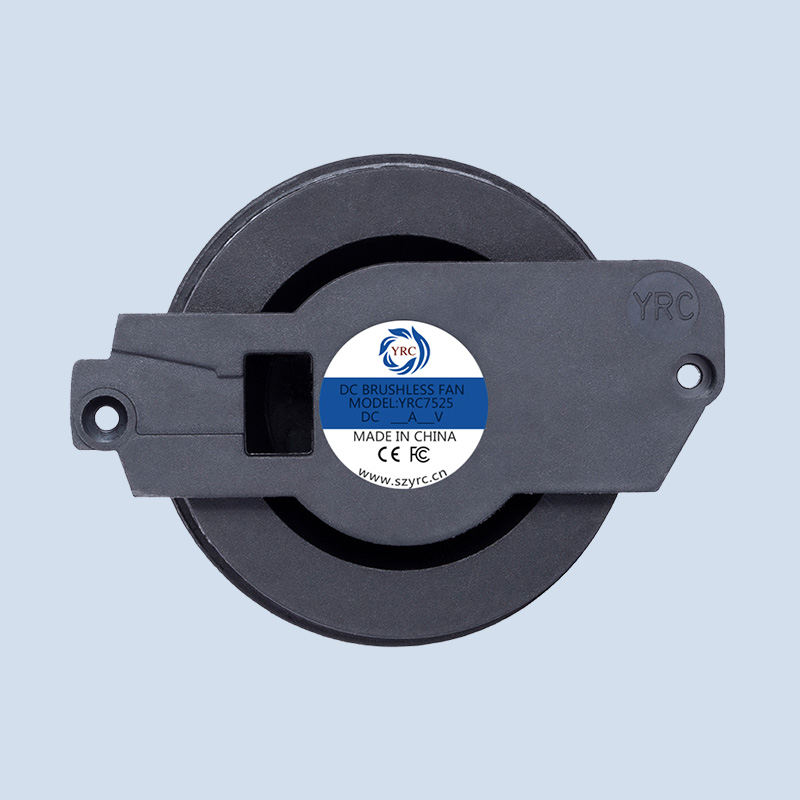
Heat dissipation knowledge| 2024-07-02|毅榮川電子
In the digital age, the efficient operation of high-performance computer hardware such as CPUs, GPUs, and servers cannot be achieved without a good cooling system. As an important component of the cooling system, the selection of a cooling fan directly affects the stability and service life of the hardware. This article will guide you on how to choose the appropriate cooling fan based on actual needs to ensure that your hardware operates at its optimal state, thereby extending its lifespan.
1. Understand your hardware requirements
1.1 Identifying Hardware Models and Power Consumption
Firstly, clarify the hardware model and power consumption that you need for heat dissipation. Different models of CPUs, GPUs, or other high-power components have different requirements for heat dissipation. The first step is to consult official documents or professional reviews to understand specific power consumption and recommended cooling solutions.
1.2 Consider chassis space and layout
The size, layout, and installed hardware of the chassis can also affect the selection of cooling fans. Ensure that the size of the selected fan matches the reserved position on the chassis, while considering the installation position of the fan (such as front, rear, top or bottom) and wind direction to form an effective air duct.
2. Analysis of Fan Performance Parameters
2.1 Air volume (CFM) and air pressure (mmH2O)
CFM (Cubic Feet per Minute): Refers to the volume of air that a fan can blow per minute, which directly affects heat dissipation efficiency. High volume fans are suitable for large-scale heat dissipation needs.
Wind pressure (mmH2O): Refers to the ability of a fan to overcome resistance and push air, which is particularly important for high resistance environments such as dense heat dissipation fins. High wind pressure fans can better penetrate obstacles and achieve deep heat dissipation.
2.2 RPM and Noise (dBA)
Revolutions Per Minute: The rotational speed of the fan directly affects the air volume and pressure. High rotational speed means higher heat dissipation efficiency, but it may also bring greater noise.
Noise (dBA): measures the level of sound produced by a fan during operation. When choosing, it is necessary to find a balance between heat dissipation performance and noise.
3. Material and durability
3.1 Fan blade material
High quality fan blades are usually made of lightweight and sturdy materials, such as plastic and composite materials, to reduce vibration and noise while ensuring stability during long-term operation.
3.2 Bearing types
Oil bearing: Low cost, but relatively short lifespan, suitable for entry-level applications.
Ball bearings: Long lifespan, stable operation, but high cost, suitable for high-end or long-term operating equipment.
Hydraulic bearings: Combining the low noise of oil bearings with the high lifespan of ball bearings, they are a cost-effective choice.
4. Additional functions and intelligent control
Modern cooling fans often have intelligent temperature control functions, which can automatically adjust the speed based on hardware temperature, ensuring both cooling effectiveness and reducing noise. In addition, PWM (Pulse Width Modulation) support is also an important feature that allows the motherboard to more accurately control fan speed.
5. Brand and after-sales service
Choosing a well-known brand of cooling fan not only ensures better product quality and performance, but also provides comprehensive after-sales service. When making a purchase, it is advisable to refer to user reviews and professional reviews to make wiser choices.
Choosing the appropriate cooling fan is the key to ensuring stable hardware operation and extending service life. By understanding hardware requirements, analyzing fan performance parameters, considering materials and durability, focusing on additional features, and selecting reliable brands, you can equip your computer hardware with the most suitable cooling solution. Remember, good heat dissipation is the cornerstone of high-performance computer systems and cannot be ignored.



掃碼咨詢
服務(wù)熱線18576680589
YGZAB No. 44030602007107